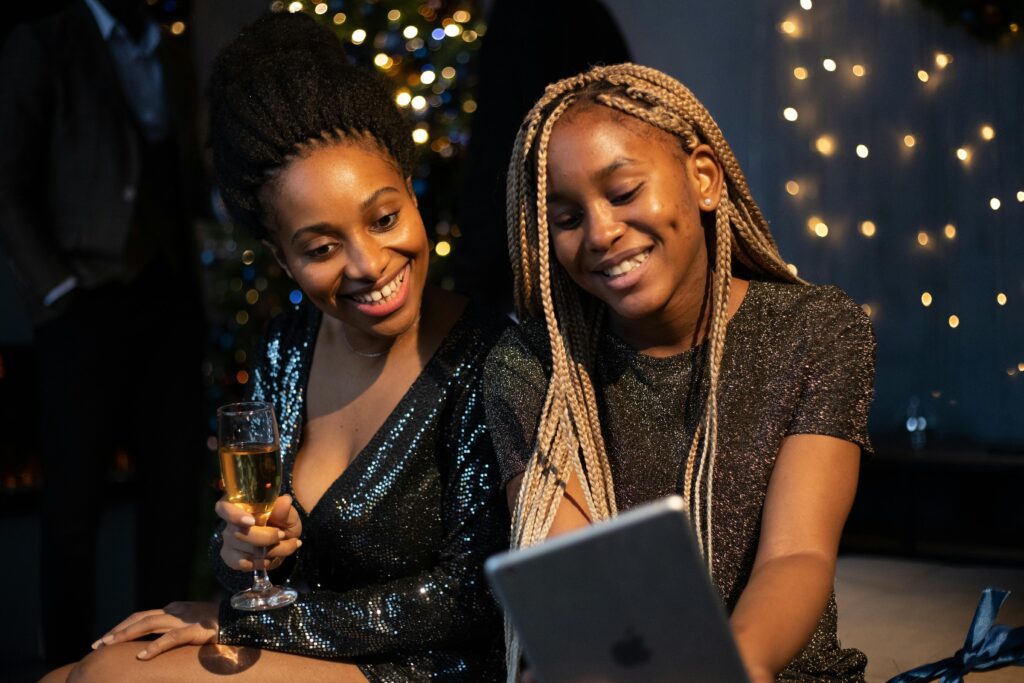
The entry of artificial intelligence (AI) into the space has caused quite a stir, with plenty of professionals expressing polarizing opinions on its impact. Generative AI, in particular, which focuses on generating new content, is either a champion or menace to creativity, depending on who you ask.
Nevertheless, AI makes for great YouTube content. Whether it’s exploring AI capabilities or demonstrating its potential effect on society, AI has become a trending topic across various YouTube channels. And within the black community, there’s been a noticeable and remarkable uptake of using generative AI in ingenious ways.
Let’s take a look at how notable black YouTubers are tackling this technology and harnessing its potentials to their advantage.
Click here to check out Marques Brownlee.
One YouTube giant keeping the AI discussion alive is tech enthusiast Marques Brownlee. Recognized as one of the leading black tech YouTubers, Brownlee is no stranger to reviewing gadgets powered by AI. He recently sent the Internet into a frenzy with his video review of the Humane AI pin, a product he claims is the worst he’s ever reviewed.
Many declared that Brownlee had single-handlely caused the downfall of the tech startup, despite the video showing a fair critique. Others, according to this TechCrunch feature article, pointed out that race may have something to do with the negative reactions, with one citing, “If Brownlee were anything other than Black, this would be ‘an honest review that shines a light on the AI bubble.’”
All this has prompted Brownlee to release another video response, where he discusses how any honest review simply accelerates “whatever was going on”. With influential YouTubers like Brownlee pushing the envelope, there’s an opportunity for even deeper conversations about the current state of AI, and how AI companies can further improve their products.
On the other end of the spectrum is the YouTube channel We Teach AI Art. This YouTuber focuses on tutorials on how to create AI art with Midjourney, a popular generative AI tool. The videos are meant to help anyone who would like to use generative AI to start a business. Click here to check out We Teach AI Art.
As a generative AI post by MongoDB mentions, generative AI models have applications in a wide range of industries, be it entertainment or healthcare. As AI research progresses generative AI capabilities will soon become a necessary part of any AI toolkit.
Digital creator Amala Ekpunobi is known for covering trending topics and providing commentary on news, culture, and politics. While many of her videos include podcast discussions about AI, a few also feature her use of AI tools.
Her series of videos on the AI Girlfriend app explore whether the AI has biases. For instance, ‘Asking My “AI Girlfriend” How Many Genders There Are’ looked at whether the AI recognizes the spectrum of gender identities or simply stuck to binary definitions.
AI bias is one of the technology’s most common challenges, and tech giants are working to address them. A CNBC report on AI bias breaks downs how companies like OpenAI and Google are fixing it. The former employs human reviewers to fine-tune AI models, while the latter uses human feedback and evaluations to improve its chatbot.
Monique Hinton is a former nurse turned content creator, and has dedicated her YouTube channel to teaching viewers how to become a successful entrepreneur. Throughout her YouTube journey, Hinton has put up videos on various methods of making money, which includes doing side hustles, starting a business with only a few dollars, and using AI tools.
For example, you can check out Hinton’s video on YouTube Automation to learn how to create automated videos with no prior AI experience. The channel’s end goal is to help people prosper, and she achieves this by exploring and breaking down concepts that may be seen as tough or unreachable.
Conclusion:
Black content creators are making a groundbreaking impact on the AI landscape, propelling conversations about generative AI in various niches. The programs, critiques, and advice they offer underscore the rich potentials of AI and its growing significance in content creation.
However, as AI’s presence grows stronger, it is crucial to continually assess how it shapes our lives. Technology should be a tool for empowerment, not oppression, and addressing issues like AI bias and technology transparency is crucial. By involving a diverse group of voices, we can work towards ensuring that AI functions not only inclusively but also equitably.
You can find more news like this on The Chocolate Voice.
